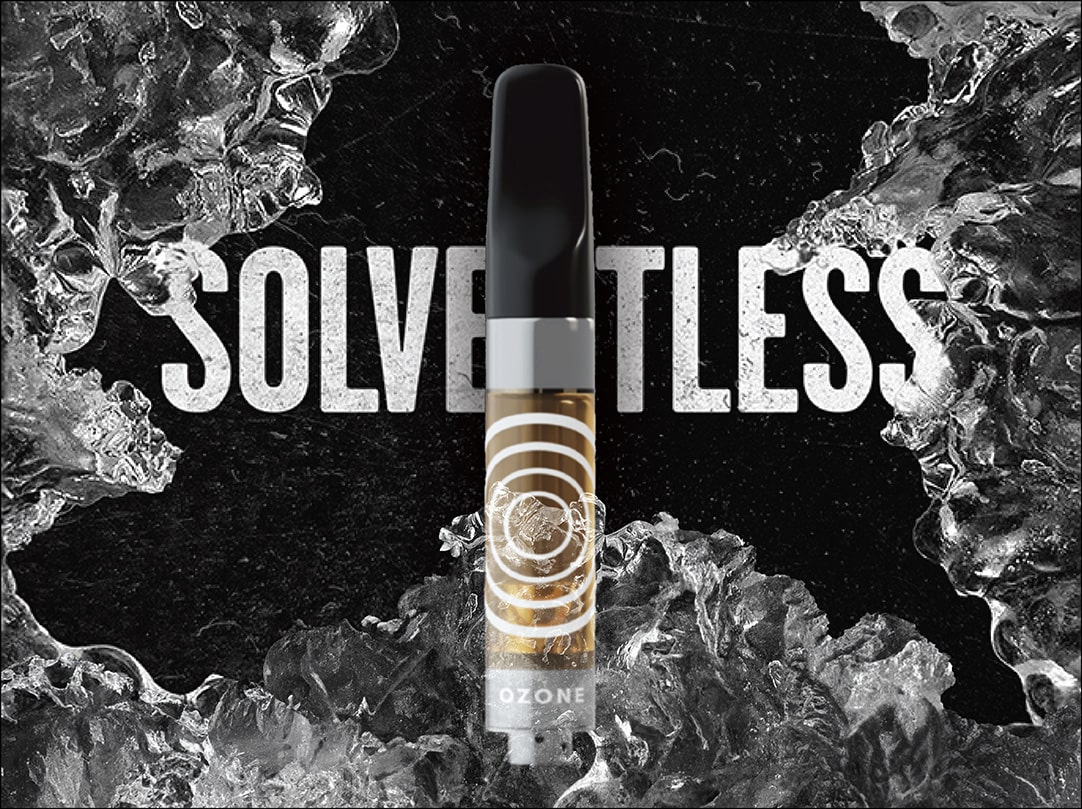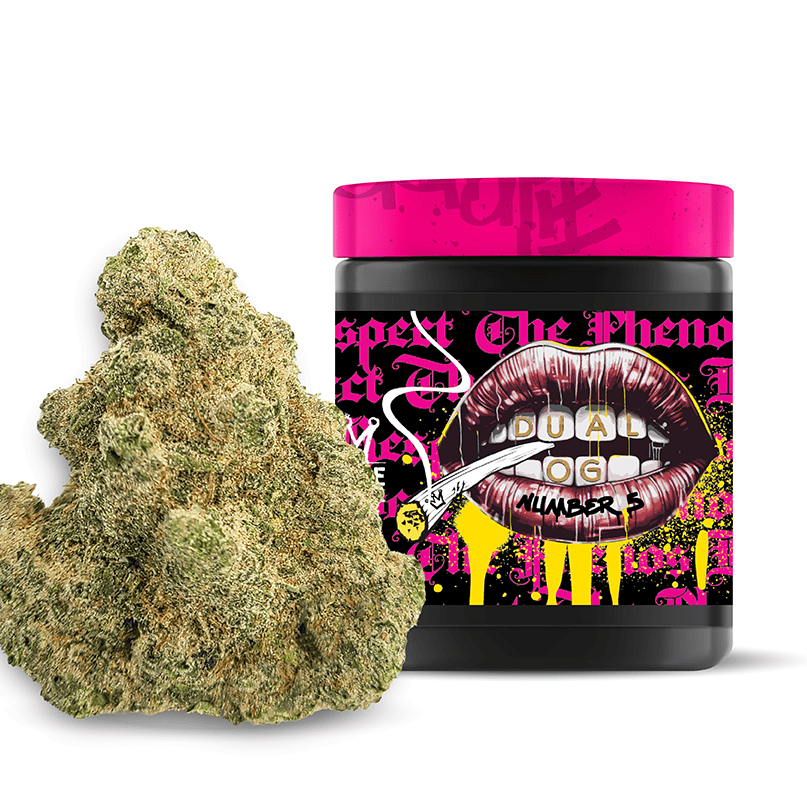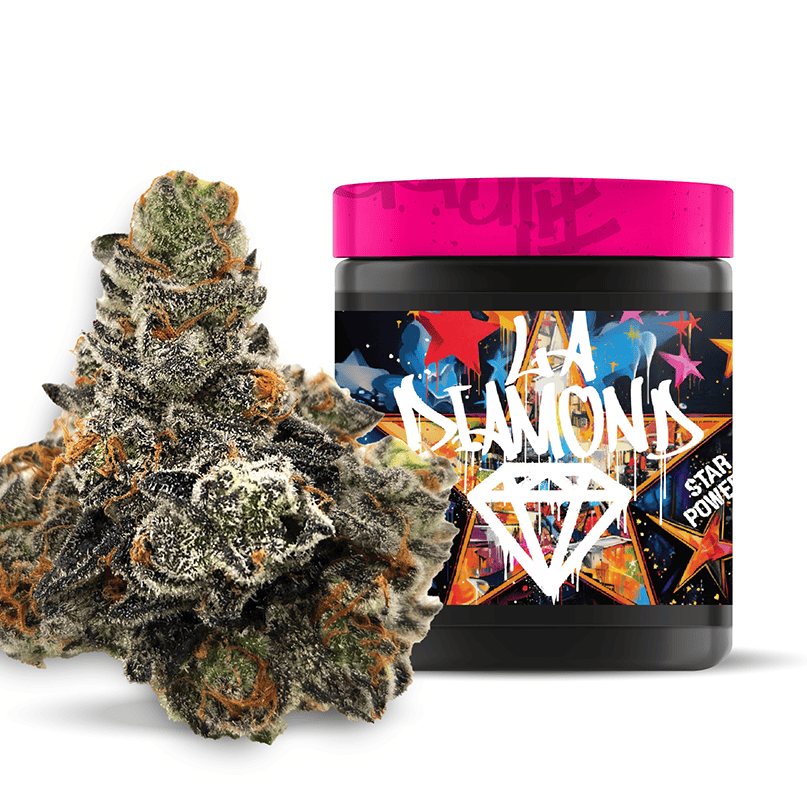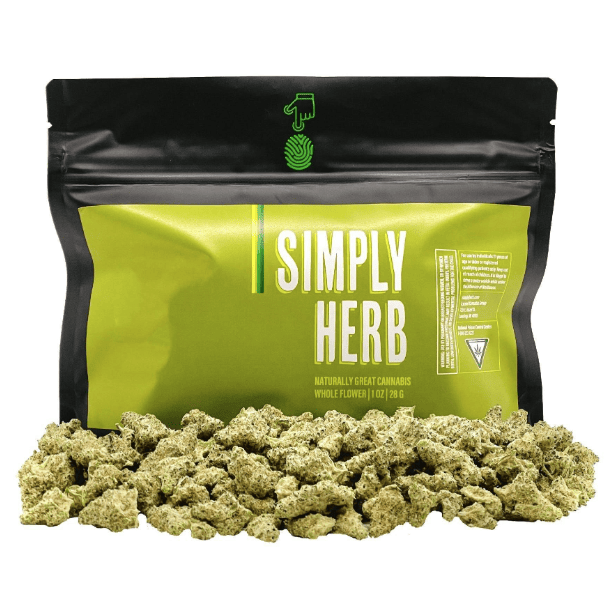Federal Marijuana Legalization: The History of Cannabis Legalization in the US
Things to do on 4/20
As April 20th rolls around, the atmosphere is thick with anticipation for the annual celebration of cannabis culture. Whether you're a seasoned enthusiast or just looking to join in on the fun, there are plenty of activities to make this weekend memorable. Take advantage of Cannapalooza’s month-long savings to re-up your stash and start planning the 4/20 of all time.
1. Munchie Crawl
This 4/20, pop an Ozone gummy and explore local flavors on a munchie crawl with the squad. Start with appetizers at a cozy café, enjoy a main course at a nearby food truck, and finish with dessert at that experimental churro-hotdog-eclair joint you keep saying you’ll check out. Support small businesses and try new things with a little herbal courage!
2. Host a Stoner Movie Marathon
Transform your living room into a cozy movie den and indulge in a stoner comedy marathon with your rotation. Order a pizza, pack the bong with some Simply Herb Popcorn, and put on movies like “Harold & Kumar,” “Pineapple Express,” and even “Reefer Madness” just to stay humble.
3. Explore the Cosmos at the Planetarium
Open your mind and explore the mysteries of the universe with a trip to the planetarium. Take a few dozen hits of your Grape Escape Simply Herb cart (but don’t overdo it!) and lose yourself in the vastness of space as you contemplate the wonders of the cosmos.
4. Indulge in a Spa Day
If you’re looking for more of an indica experience, why not opt for a Saturday of self-care? Remember the face masks and the bath bombs you impulse-bought but never used because you were saving them for a special day? Today is that day! While we’re at it, take a stab at brewing some infused tea with Ozone flower to really commit to the wellness bit.
5. Host a Danksgiving Dinner
4/20 is a certified holiday, so why not celebrate it like one? Decarboxylate your stash and serve your buds an infused banquet to remember. Screw it, why not borrow a few other holiday traditions while we’re here? Go around the table and tell the rotation what strain you’re most grateful for! Dress up in costumes and go door to door asking for edible gummies! Go down the chimneys of every stoner on the planet and eat their milk and cookies!
As April 20th approaches, prepare to embark on a day filled with laughter, relaxation, and celebration. Whether you choose to explore the cosmos or savor a gourmet feast, there's no shortage of ways to make this 4/20 one for the books. So summon your squad, stock up on your favorite Ascend goodies, and let the festivities begin!
The Best 4/20 Deals
Welcome to Cannapalooza, our month-long festival of sales! Get ready to party with prices so low you’ll be begging for an encore. If you’re new to the festivities, you might need a map so you can figure out which sets are playing where. Never fear– we’ve got the scoop on the best deals right here so you’re not left with your head spinning in the middle of the mosh pit. Here's your ultimate guide to getting the most bang for your buck at Cannapalooza.
Vape Carts
Fill up your cart with carts for the whole rotation! These convenient cartridges offer a discreet and flavorful way to enjoy your favorite strains. Plus, with their long-lasting effects, you can dance the night away without missing a beat. It’s a great time to check out our new Simply Herb flavors – Banana Rainbow, Grape Escape, Dungeons and Dragon Fruit, and Cherry Cola!
Flower
For those who prefer the classic experience, indulge in the aromatic bliss of Simply Herb Flower and Ozone Flower. Roll up a joint or pack a bowl to savor the rich flavors and potent effects. If rolling isn’t your forte and you can’t be bothered to clean the bong, try our Ozone Distillate Infused Pre-Roll. It's the perfect solution for those who want to dive straight into the festival fun without any fuss.
Concentrate
Time to go live with Ozone Live Budder. This potent extract delivers an intense punch of THC, perfect for seasoned tokers looking for an elevated experience. You can also expect rich terpene profiles coming through without the burnt flavor of plant material. Be prepared for a euphoric journey through the clouds when the wax hits your rig!
Edibles
Need a sweet treat to keep you going through the day? Grab some Ozone Gummies and let yourself vibe out. Our lineup of delicious gummies come in a variety of flavors like Acai and Chili Mango, ensuring there's something for everyone. Just remember to start low and go slow to avoid overindulging.
So there you have it, your ultimate guide to maximizing your high with Simply Herb and Ozone deals at Cannapalooza. With a little planning and a lot of savings, you'll be on your way to having the 4/20 of your dreams. Let the music play on, and the good times roll!
The Ultimate 4/20 Gift Guide for Stoners
Ah, 4/20 - the day when the air smells a little greener, and everyone's inner Bob Marley comes out to play. Whether you're shopping for your seasoned stoner pal or your newbie bud enthusiast, we've got you covered with the perfect gifts to elevate their celebration.
1. Rolling Papers
For the traditionalists who prefer to roll their own, a pack of high-quality rolling papers is essential. Or, if your friend's rolling skills are more like a drunken origami attempt, opt for pre-rolls for a hassle-free experience. It's like a joint, but with training wheels.
2. Simply Herb Vape
For the friend who wants to keep things discreet and classy, a sleek vape pen is the way to go. Perfect for puffing on-the-go without drawing too much attention. Plus, it's like the James Bond of smoking accessories. It’s a good time to check out our new flavors – Banana Rainbow, Grape Escape, Dungeons and Dragon Fruit, and Cherry Cola!
3. Grinder
Help your buddy level up their herb game with a top-notch grinder. Say goodbye to sticky fingers and uneven burns - a good grinder ensures a smooth and even grind every time. It's the unsung hero of the cannabis world.
4. Ascend Dispensaries Gift Card
Give the gift of free will with a gift card to their favorite dispensary. Whether they're in the mood for edibles, concentrates, or a new piece for their collection, our gift card will make their 4/20 dreams come true. Just make sure they remember to share!
5. Hoodie
Keep your friend cozy and stylish during their smoke sessions with a hoodie specifically designed for the occasion. Not only does it provide the perfect cover for those chilly outdoor smoke sessions, but it also helps minimize the lingering weed aroma on their regular clothes. It's like a smoke shield for their wardrobe, ensuring they stay fresh while they indulge in their favorite pastime.
6. Joint Holder
Upgrade their joint game with a fancy glass joint holder. Not only does it add a touch of sophistication to their smoking experience, but it also helps prevent those pesky crushed joints at the bottom of their pocket. Plus, it's like giving their joint its own little VIP section.
7. Simply Herb Flower
You can't go wrong with some premium flower. Choose a strain that matches their vibe - whether they're into mellow indicas or energizing sativas, there's something for everyone. Just be prepared for them to suddenly become a botanical expert.
8. Lighter
We all have that one friend who's constantly losing their lighter. It's like they have a secret portal to the lighter dimension hidden in their pocket. Help them restock their arsenal with a trusty new lighter. Sure, it might disappear into the void eventually, but at least they'll have a fighting chance. It's the little flame that could - until it mysteriously vanishes into thin air.
9. Ozone Gummies
For the friend who loves a sweet high, Ozone gummies are a tasty treat. With flavors like grape splash and pineapple mango, they offer a delicious way to enjoy THC without smoking. Just pop one and float away on a cloud of bliss. Just be warned: once your friend tries these irresistible gummies, they might never want to come back down to earth.
So there you have it - the ultimate 4/20 gift guide guaranteed to make your stoner friend's day a little brighter (and hazier). Happy blazing!
Introducing Ozone Solventless
Introducing Ozone Solventless vapes and concentrates – nothing but flower, ice and water. Each and every solventless products is crafted from fresh frozen flower using a meticulous small-batch process. The flower undergoes an ice water wash, preserving its full spectrum essence without solvents or additives. Each batch is washed and sifted by hand, ensuring top-tier quality and safety. The final product is premium solventless oil, born from ice, free of solvents and additives, delivering an authentic, natural taste. These vapes are ideal for connoisseurs, or any consumer looking for a safe, pure, and flavorful vape.

DISPOSABLE VAPE

SOLVENTLESS VAPE CARTS

CONCENTRATE

LIVE ROSIN CART
Miss Grass: Find Your Time

In a world where time is both a precious commodity and a canvas for experiences, Miss Grass emerges as a beacon, offering a spectrum of sensations and moments to enhance your journey. With a focus on sustainability, terpene richness, and consistent quality, Miss Grass delivers not just cannabis products but a philosophy: Weed for the Times. Let’s dive into how Miss Grass can elevate your moments, whether they’re fast-paced, tranquil, or somewhere in between.
“What’s the first word that comes to mind when you hear ‘Miss Grass’?”
Ascend associates are experts on the times, and can help you find your perfect match the next time you pick up.
Don’t just take it from us! We asked Miss Grass fans to describe their times:
“My best Fast Times always start with a walk in the woods because there’s nothing like getting a little stoney while surrounded by nature’s beauty. It’s like hitting the refresh button for my mind and soul.”
“Quiet Times give me the freedom to be myself in social situations because they help me unwind and let go of any tension or anxiety. It’s like a gentle wave of relaxation washes over me, allowing me to fully engage with others without feeling overwhelmed or self-conscious.”
“My Fast Times always begin with a spark of creativity, especially when diving into personal art projects or tackling work-related brainstorming sessions. There’s something about that little j that ignites my imagination, making every project feel more vibrant and inspired.”
“I love to kick off my weekend with Quiet Times – it’s become my ritual. I light up, wash off the week, grab my favorite takeout, and cozy up on the couch with a show. It’s the ultimate way to unwind and embrace pure relaxation.”
Find your time…
Embrace the essence of Weed for the Times with Miss Grass, where every moment is enriched with intention and elevation. Whether you’re craving the exhilarating rush of Fast Times or the tranquil embrace of Quiet Times, discover your perfect match at your local Ascend today. Elevate your experiences and indulge in the ultimate cannabis journey tailored to your unique moments.
How to Make Infused BBQ Pigs-in-a-Blanket for March Dankness
March Dankness calls for munchies as exciting as the games themselves. Elevate your game-day spread with infused pigs-in-a-banket that’ll make the crowd go wild! Whether you’re hosting a watch party or craving something delicious, this easy spin on the classic snack will score big with your audience. So, gear up, tune in, and start cooking!
Prep time: 2hrs 15min
Ingredients:
4 grams Dried Simply Herb Flower
7-8 tbsp butter/coconut oil
1 Package of Cocktail Sausages
1 Cup BBQ Sauce
6 Strips of Bacon
1 Cup Cheddar Cheese
¼ Cup Chopped Green Onion
1 8oz Can Crescent Rolls
1 Egg
2 tbsp Water
Pinch of Black Pepper
Instructions:
- Craft Your Infused Cannabutter: Start by infusing your butter with cannabis. Melt 7-8 tablespoons of butter or coconut oil in a saucepan over low heat. Add your ground flower and let it simmer for about 2 hours. Strain out the plant material, and voila – you’ve got infused goodness!
- Infuse Your BBQ Sauce: Warm up your BBQ sauce in a small saucepan over low heat. Once it’s warm, add your cannabis butter/oil and stir it in. Remember, keep the temperatures low to preserve those precious cannabinoids. Remove from heat and set aside. Overheating will spoil the magic, so be cautious!
- Crisp Up Your Bacon: Fry those bacon strips until they’re extra crispy. Once they’re done, place them on a paper towel to soak up any excess grease. Once cooled, chop them into fine bits.
- Preheat and Prep: Preheat your oven to 350°F and grease a baking sheet. In a small bowl, crack the egg, add 2 tablespoons of water, and a pinch of black pepper. Whisk it all together to create your egg wash.
- Roll ‘Em Out: Unroll your crescent rolls and slice them into thinner, smaller pieces on a cutting board.
- Assemble the Magic: Take one slice of crescent roll dough at a time and flatten it. Place a cocktail sausage in the center and sprinkle on a bit of cheddar cheese, bacon bits, and chopped green onion. Finally, spoon on that infused BBQ sauce evenly over the top.
- Wrap It Up: Carefully wrap up the crescent roll dough around the sausage and other ingredients, creating a little blanket.
- Bake to Perfection: Arrange your wrapped sausages on the greased baking sheet. With a spoon or brush, lightly drizzle the egg wash mixture over the top of each one. Pop them in the oven and bake until they’re golden brown, about 12-15 minutes of mouth-watering anticipation.
- Serve and Enjoy: Once they’re out of the oven, serve up these little bites of heaven with any leftover infused BBQ sauce mixed with the remaining bacon and green onion. Get ready to impress your friends with this elevated take on a classic snack!
5 Stoner Superstitions to Know to Celebrate a Magical St. Phatty's Day
As we approach St. Phatty’s Day, the luckiest day of the year for cannabis enthusiasts, it’s time to peel back the layers of mystique and delve into the quirky superstitions that float around the weed-smoking world like a cloud of aromatic smoke. From mango munching to passing to the left, let’s explore the superstitions that add a sprinkle of magic to our toking rituals.
1. Munching Mangoes: The High-Flying Myth
Ever heard that eating a mango before sparking up can elevate your high to cloud nine? While it sounds like a fruity fairy tale, there’s a nugget of truth buried in this myth. Mangoes contain myrcene, a terpene also found in certain cannabis strains. However, the evidence is hazy at best. So go ahead, snack on a mango, but don’t expect miracles—just a delicious pre-toke treat!
2. Pass to the Left: A Counterclockwise Conundrum
In the hazy circles of stoner culture, passing to the left is gospel. But why left, you ask? Blame it on the hippies, or perhaps the Victorian-era butlers—the reasons are as foggy as the room. However, one thing’s for sure: pass to the right at your own risk. So, take two hits max of that Ozone Lky Charmz Vape and pass counterclockwise, unless you’re feeling rebellious—then, all bets are off.
3. The Curse of the White Lighter: A Lighter Shade of Superstition
White lighters: innocent tools or harbingers of doom? Legend has it that the tragic fates of rock icons—Jim Morrison, Jimi Hendrix, Janis Joplin—were sealed with white lighters in hand. Snopes.com debunked this myth, but the stigma persists. So this St. Phatty’s Day, pick up a green lighter and avoid the pinch of the cannabis community.
4. Bowl Etiquette: The First Hit Dilemma
To hit or not to hit, that is the question. When packing a bowl, tradition dictates that the packer relinquishes the first hit to the next in the rotation. But is it a noble act of generosity or a puff of hypocrisy? Sometimes, the green hit isn’t the sweetest, and troubleshooting mid-sesh is nobody’s idea of a good time. So, pack your bowl and puff with pride—just mind the chokehold.
5. 420: The High Noon of Superstitions
Ah, the sacred hour of 4:20—the pot of gold at the end of the rainbow. Originating from school escapades in Northern California, 420 transcended its roots to become a universal symbol of cannabis camaraderie. Miss the mark, and your St. Phatty’s Day may lose its luster. Whether it’s 4:20 a.m. or p.m., light up, puff, puff again, and pass.
In the end, cannabis superstitions are as varied as the shades of green on St. Phatty’s Day. Some are rooted in history, others in whimsy, but all add a sprinkle of magic to our toking traditions on this most fortunate of days. So, as you raise your glass—or your vape—to good luck, embrace the quirks, and let the good vibes flow. After all, in the realm of cannabis, superstition is just another way to catch a little luck of the high-rish.
10 Women to Celebrate in Cannabis History
As we celebrate Women’s History Month, it’s time to honor the trailblazing women who have played pivotal roles in shaping the cannabis industry. From ancient times to the modern era, these remarkable women have left an indelible mark on cannabis history. So, let’s take a closer look at 10 influential women in cannabis history:

1. Queen Victoria
Throughout history, reports suggest that queens, like Queen Victoria, turned to cannabis for pain relief, particularly during menstrual cramps. Their early use underscores cannabis’s longstanding medicinal role.
Product we recommend for Queen V.


2. Margaret Mead
This renowned anthropologist not only studied cultures but also advocated for marijuana legalization before Congress in 1969. Mead highlighted its global usage and argued against the prohibition, believing it caused more harm than good.
Product we recommend for Margaret:


3. Maya Angelou
Maya Angelou–Beyond her literary prowess, Maya Angelou was a vocal advocate for cannabis. In her memoirs, she shared experiences that celebrated the plant’s ability to bring joy and laughter into her life during challenging times.
Product we recommend for Maya:


4. Brownie Mary
Mary Jane Rathburn, affectionately known as Brownie Mary, was a tireless medical cannabis rights activist. She famously baked infused brownies to alleviate the suffering of AIDS patients during the epidemic, challenging the stigma surrounding cannabis use.
Product we recommend for Brownie Mary:


5. Billie Holiday
The legendary jazz singer found solace in cannabis to manage her pain and frequently enjoyed sharing a puff with fellow musicians. Billie Holiday’s openness about her cannabis use highlighted its role in artistic expression and community bonding.
Product we recommend for Billie:


6. Dr. Allyn Howlett–A pioneer in neuropharmacology
Dr. Howlett’s research into the endocannabinoid system revolutionized our understanding of how cannabis affects the brain. Her discoveries paved the way for advancements in cannabis science and medicine.
Product we recommend for the Dr:


7. Erin Wilkins
A modern-day cannabis entrepreneur, Erin’s commitment to sustainable farming practices has earned her recognition in the industry. Her innovative approach to cultivation sets a standard for environmentally conscious cannabis production.
Product we recommend for Erin:


8. Wanda James
As the first Black female dispensary owner in Colorado, Wanda James has been a vocal advocate for cannabis equity and reform. Her efforts have helped shape policies that promote diversity and inclusion in the cannabis industry.
Product we recommend for Wanda:


9. Dr. Chanda Macias
Dr. Macias’s leadership as the chair of Women Grow and her multi-state cannabis operations underscore her commitment to empowering women in the industry. She continues to break barriers and champion inclusivity.
Product we recommend for Dr. Chanda:


10. Rachel Knox
Dr. Knox’s holistic approach to cannabis in Western medicine challenges stereotypes and misinformation. Her dedication to patient care and education highlights the importance of integrating cannabis into mainstream healthcare practices.
Product we recommend for Rachel:

These women represent the diverse contributions and resilience within the cannabis community. From advocacy and entrepreneurship to scientific research and patient care, their legacies continue to inspire future generations of women in cannabis. As we celebrate Women’s History Month, let’s honor their achievements and strive for a more inclusive and equitable cannabis industry. After all, the future is female, and so is the future of cannabis!
How THCV Can Help You Express the Five Love Languages
Cannabis has a way of intertwining with our expressions of love, often enhancing our experiences in unexpected ways. As we explore the relationship between cannabis, particularly Tunnel Vision’s THC-V, and the five love languages, let's dive into how this magical herb can add a spark to our relationships.
1. Words of Affirmation
When you’re baked on THC-V, compliments flow, gratitude spills over, and conversations dive deep into the cosmic unknown. Expressing affectionate words may feel more spontaneous and genuine under the influence. Verbal affirmations can flow more freely, fostering deeper emotional connections.
2. Acts of Service
With THC-V's known uplifting properties, individuals may feel inspired to lock in and focus on caring for their partners through small gestures. Planning surprise activities, cooking nice dinners, cleaning up around the house, or pampering them with back rubs can become delightful expressions of love.
3. Receiving Gifts
Pass the Joint! THC-V's potential to heighten sensory experiences makes gift-giving moments even more memorable. Sharing unique cannabis products or discovering new strains together can deepen intimacy and strengthen bonds.
4. Quality Time
THC-V's stimulating effects can infuse shared moments with laughter and joy. Engaging in stimulating activities or exploring new hobbies can amplify the fun, and the heightened senses said to be induced by THC-V can lead to meaningful connections and shared experiences.
5. Physical Touch
THC-V's potential to enhance sensory perception can intensify physical sensations. Gentle caresses and intimate moments may feel more profound and gratifying. Mutual exploration and consent are essential for creating intimate connections while puffing THC-V.
As we explore the depths of love and connection, let's remember to embrace the magic of cannabis responsibly and with open hearts.










